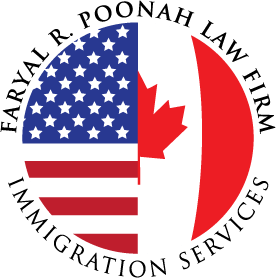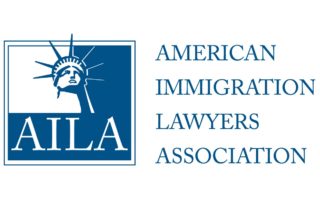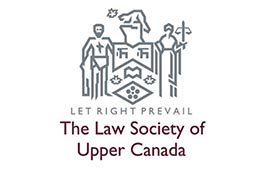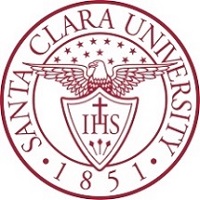Temporary Foreign Workers Alberta
Alberta Opportunity Stream for Temporary Foreign Workers
The Alberta Opportunity Stream is for temporary foreign workers who have a full time job offer from an Alberta employer in an eligible occupation and are already working full-time in Alberta. This program has minimum eligibility requirements for residency and work permit type, occupation, language, education, Alberta job offer and work experience. A positive Labour Market Impact Assessment (LMIA) or an accepted LMIA exemption work permits is also required.
Temporary Foreign Work Permit Requirements
At the time the application is submitted, and at the time the AAIP assesses your application, you must have a valid temporary resident status in Canada that authorizes you to work in Canada, that is, a temporary foreign worker permit.
Eligible Applicants
At the time of application submission, and at the time the AAIP assesses the application, candidates must have a valid work permit – not status maintained during processing (formerly implied status) or restoration status.
Valid work permits are based on one of the following:
- a positive Labour Market Impact Assessment (LMIA)
- a LMIA exemption for workers based on one of the following exemptions as determine by Immigration, Refugees and Citizenship Canada (IRCC):
- international trade agreements
- workers transferred within a company
- International Experience Canada
- Mobilité Francophone
- R205(d) for religious work
- an open work permit issued by IRCC to:
- vulnerable workers who have demonstrated they are experiencing abuse or are at risk of abuse in the context of their employment in Canada, including under the Vulnerable Workers Open Work Permit (VWOWP) exemption, or
- the family members of a vulnerable worker under the VWOWP exemption
- a Post-Graduation Work Permit (PGWP) held by a graduate of an Alberta Advanced Education publicly funded post-secondary institution
- PGWP holders must also meet specific occupation, education and work experience requirements as set out below.
- PGWP occupation must also be related to the field of study in Alberta. Review the education requirements section for details on eligible Alberta credentials and approved Alberta institutions.
- an open work permit issued under one of IRCC’s open work permit public policies:
- 2022 temporary policy changes to the PGWP Program or 2023 temporary policy changes to the PGWP Program
- Permit must beheld by a graduate of an Alberta Advanced Education publicly funded post-secondary institution.
- Holders of these open work permit must also meet the same specific occupation, education and work experience requirements as PGWP holders as set out below
- an open work permit issued under the public policy for Hong Kong recent graduates
- an open work permit issued under IRCC’s Ukraine immigration measures (also known as the Canada-Ukraine Authorization for Emergency Travel (CUAET)).
- 2022 temporary policy changes to the PGWP Program or 2023 temporary policy changes to the PGWP Program
Eligible Occupations
Candidates must be working in an eligible occupation in Alberta at the time of application submission and at the time the AAIP assesses the application. Occupation requirements also apply to work experience and job offers.
The occupation you are working in when your application is submitted is your ‘current occupation.’
Most occupations under NOC TEER Categories 0, 1, 2, 3, 4, and 5 are eligible under the AAIP.
The list of ineligible occupations has been updated with the NOC 2021 version. Read the updated list to assess your eligibility for this stream.
Language Requirements
Applicants must provide language test scores (less than 2 years from the date you took the test) based on a single test result in English or French at the time that of application submission. The AAIP accepts the following language tests: Canadian English Language Proficiency Index Program (CELPIP) General Test; International English Language Testing System (IELTS) General Training Test; Test d’évaluation de français Canada (TEF Canada); or, Test de connaissance du français Canada (TCF Canada).
The following minimum scores are required:
| National Occupational Classification (NOC) TEER category | Canadian Language Benchmark (CLB) test score required | Niveaux de compétence linguistique canadiens (NCLC) test score required |
| If you are working in a NOC 0, 1, 2 or 3 occupation | Minimum of 5 for each English language skill | Minimum of 5 for each French language skill |
| If you are working in a NOC 4 or 5 occupation | Minimum of 4 for each English language skill | Minimum of 4 for each French language skill |
The only exception to these minimum language scores are for those applying under NOC code 33102 (nurse aides, orderlies and patient service associates), for which the AAIP requires a minimum language test score of CLB of 7 for each English language skill, or NCLC of 7 for each French language skill.
Education Requirements for All Applicants except Post-Graduation Work Permit holders
As of January 1, 2021, all applicants must have completed a minimum of high school education equivalent to Canadian standards at the time of application submission. This must be proved by an Educational Credential Assessment (ECA) issued by an organization designated by IRCC for the highest level of education. Candidates that do not have an ECA report with proof of completion of Canadian high school or the foreign educational institution, will not meet the education requirement, and will not be eligible.
An ECA is not required for applicants with a Canadian degree, diploma or certificate from a recognized Canadian post-secondary, technical college or secondary institution, or a valid Alberta Qualification Certificate or a trade certificate recognized by Alberta Apprenticeship and Industry Training (AIT).
Post-Graduation Work Permit Holders
PGWP holders must meet the following additional education requirements at the time of application submission:
- Credentials must be issued by an approved Alberta Advanced Education publicly funded post-secondary institution.
- Applicants who started their Alberta credential program before April 1, 2019, must have anAlberta Advanced Education approved credentials, such as a certificate or post-diploma certificate or post-baccalaureate certificate (minimum 1 year in length); diploma program (minimum 2 years in length); undergraduate bachelor’s degree; or, graduate level degree / certificate / diploma
- Applicants who started their Alberta credential program on or after April 1, 2019, must have anAlberta Advanced Education approved credentials such as a post-diploma certificate or post-baccalaureate certificate (minimum 1 year in length); diploma program (minimum 2 years in length); undergraduate bachelor’s degree; or, graduate level degree / certificate / diploma
Work Experience Requirements
Your current occupation (the occupation you are in at the time your application is submitted) must also match your work experience at the time your application is submitted and at the time the AAIP assesses your application.
Eligible Work Experience
At the time your application is submitted you must have either:
- a minimum of 12 months full-time work experience in your current occupation in Alberta within the last 18 months, or
- a minimum of 24 months of full-time work experience in your current occupation in Canada or abroad within the last 30 months or both – this work experience can be a combination of experience gained in Alberta, in Canada (outside Alberta) or abroad.
Post-Graduation Work Permit holders require a minimum of 6 months full-time work experience in their current occupation in Alberta within the last 18 months.
For all applicants, including Post-Graduation Work Permit (PGWP) holders, work experience must have been full-time, for a minimum of 30 hours a week and for the same occupation as their current occupation, which has been authorized by Immigration, Refugees and Citizenship Canada (IRCC) and with valid temporary resident status if completed in Alberta or Canada.
Other than PGWP holder who completed during paid co-op work terms as a part of their program of study at an Alberta post-secondary institution, work experience cannot have been gained while studying in Canada and doing co-op work placements or internships as part of a study program. In order to qualify, the work terms must be paid and full-time (minimum 30 hours per week); for work experience directly related to your current occupation, and for work experience all gained in Alberta.
All applicants, including PGWP holders, must meet the following licensing, registration and certification requirements at the time your application is submitted and the time the AAIP assesses the application:
- You must have the required licensing, registration or certification to work in your current occupation in Alberta.
- If you are working in a compulsory trade in Alberta, you must have a valid Alberta Apprenticeship and Industry Trade (AIT) recognized trade certificate.
- If you are working as childcare worker, you must have valid certification as a Level 2 Early Childhood Educator (formerly Child Development Worker) or Level 3 Early Childhood Educator (formerly Child Development Supervisor).
Eligible Job Offers
At the time the application is submitted and assessed by the AAIP, applicants must have a bona fide full-time offer of employment or employment contract from an Alberta employer to work in your current occupation in Alberta.
The Alberta employer providing the job offer must be incorporated or registered by or under an act of the legislature of a province, territory, or the Parliament of Canada and operating as a business that has an established production capability, plant or place of business in Alberta.
The job offer or employment contract must be signed by the applicant and the Alberta employer and must offer:
- continuous, paid work
- full-time work, defined as a minimum of 30 hours per week
- employment for 12 months or more
- work in your current occupation
- wages and benefits that meet provincial minimum wage and:
- meet or exceed the requirements set out in your LMIA, or
- if you are LMIA exempt, meet or exceed the lowest starting wage for your occupation across all industries in Alberta as set out on the Alis website
- exceptions for NOC 41302 – Religious leaders and NOC 42204 – Religion workers:
- If your job offer is LMIA exempt, your wages and benefits must meet or exceed minimum wage.
- Meal and lodging deductions that meet Employment Standards are permitted. Proof of employee authorization of deductions is required.
- work for an eligible AAIP occupation for which you have a work permit that meets AAIP work permit requirements
- Note: The update of the NOC to the NOC 2021 version does not affect the validity of LMIAs and LMIA based work permits issued under the NOC 2016 version.
You must meet the terms agreed to in your job offer or employment contract at the time of your application is submitted and at the time the AAIP assesses your application.
Alberta Rural Renewal Stream
The Rural Renewal Stream is a community-driven program with the intent of attracting and retaining foreign nationals to rural Alberta. The pathway supports local economic development needs and contributes to the growth of the rural communities through the recruit and retention of foreign nationals to live, work and settle in their communities. Candidates must be offered a full-time job in a designated community and an Endorsement of Candidate Letter from the designated community.
Candidates may qualify as a Temporary Foreign Worker category, or under the Economic Mobility Pathways Pilot (EMPP).
Communities and Employers Abilities under the Program
As part of this stream, communities, and employers work on their own to recruit foreign workers. The community will provide an Endorsement of Candidate letter to selected candidates. Once nominated, temporary foreign workers can qualify to work while they wait for a decision on their permanent residence application.
Economic Mobility Pathways Pilot
In addition to the above, under the Rural Renewal Stream approved non-governmental organizations, also referred to as a Designated Referral Partner, may recruit and retain refugees under the Economic Mobility Pathways Pilot (EMPP). The role of Designated referral partners is to assist in identifying candidates abroad with the skills and experience, and who meet the EMPP program criteria, to facilitate a match with local employers in designated rural Alberta communities. The EMPP is a partnership between Immigration, Refugees and Citizenship Canada (IRCC) and the Alberta Advantage Immigration Program (AAIP).
The AAIP can nominate refugees for permanent residence through its Rural Renewal Stream and provide priority processing on a provincial level. EMPP applicants arrive to Alberta as permanent residents. This is considered the Regional EMPP program.
Communities must apply for and become designated before they can recruit and endorse candidates for the Rural Renewal Stream. Candidates endorsed by the community who meet eligibility requirements either temporary foreign worker or EMPP refugee can apply using the Alberta Advantage Immigration Program portal.
The Rural Renewal Stream has a 2-step process:
- One of the following community endorsement processes –
- Community directly recruits temporary foreign workers to meet labour needs and provides an Endorsement of Candidate letter to selected candidates.
- Community completes Alberta’s Economic Mobility Pathways Pilot (EMPP) referral process to recruit refugees. An EMPP referral partner organization works with the community and the Alberta employer to assist in finding a refugee for the respective labour need. Selected candidate receives Endorsement of Candidate letter from the community and an EMPP Referral Partner letter from the referral partner.
- Candidate submits the AAIP application.
The AAIP defines a rural Alberta community as any community outside of the Calgary and Edmonton Census Metropolitan Areas (CMAs) that are under 100,000 in population.
Community Residency Requirement
Foreign nationals must have the intent to reside and work in the designated community in Alberta at the time of application submission and also at the time the AAIP assesses your application.
Community Endorsement Requirement
At the time your application is submitted and at the time the AAIP assesses your application, you must have a valid Endorsement of Candidate letter issued by the Economic Development Organization (EDO) of your designated rural community in Alberta. The recommendation must be based on criteria established by the EDO. In addition, you must meet the AAIP Rural Renewal Stream eligibility criteria.
Endorsement of Candidate letter
All candidates must have an Endorsement of Candidate letter from their designated community. The letter must be issued by the local EDO of the community and must outline the following:
- name and address of the EDO supporting the application
- your full name and residential address
- details of the bona fide job offer:
- name of the business
- name and contact information of the employer
- location of employment
- position and description of job duties
- duration of employment and work conditions
- detailed description of how filling the position you are offered aligns with the economic growth of the designated community
- your employer’s efforts to fill the position within Canada and outcomes
- name, title and contact information of the person issuing the Endorsement of Candidate letter.
You must review the requirements for endorsement letters section for details.
Referral Partner letter (for EMPP refugee applicants only)
Letter must be issued by one of the following EMPP referral partners:
- FOCUS Humanitarian Assistance
- Hebrew Immigrant Aid Society (HIAS)
- International Rescue Committee
- JumpStart Refugee Talent
- RefugePoint
- Talent Beyond Boundaries
- Talentlift
Letter must:
- include information for the partner organization representative(s) issuing the letter – name, title, email address, phone number, signature
- include the applicant’s full name and date of birth
- include the applicant’s job information
- confirm the referral partner has completed an assessment of the principal applicant relating to the verification of their status, and indicate which following document is held, either:
- a positive Refugee Status Determination (RSD) from either the UNHCR, or a refugee-hosting state
- proof of being registered or recorded as a person of concern by the UNHCR, if a positive RSD has not been obtained yet or is not available in the state where the foreign national is residing at the time of their application
- a refugee certificate with the United Nations Relief and Works Agency for Palestine Refugees in the Near East (UNRWA)
- proof of being registered or recorded as a person of concern by the UNRWA, if a refugee certificate has not been obtained yet
- and a Temporary Protection Status (TPS) document proof of having Temporary Protected Status issued by the hosting state where you are residing at the time of your application; and a Durable Solution Information (IMM 0195) form
If you do not have one of the documents listed above, you must apply with the support of an EMPP partner who can issue a federal trusted partner referral letter (IMM 0183). The federal trusted partner referral letter must be submitted with your application. The letter must be valid at the time of the application.
Job Offer Requirements
At the time of application submission and at the time the AAIP assesses the application, applicants must have a bona fide full-time job offer or employment contract from an Alberta employer to work in an eligible occupation within the designated community.
The Alberta employer must be incorporated, or registered by or under, an act of the legislature of a province, territory, or the Parliament of Canada and operating as a business that has an established production capability, plant or place of business in Alberta.
All job offers or employment contracts must be signed by both applicant and the Alberta employer, and must offer:
- continuous, paid work in your designated community
- full-time work, defined as a minimum of 30 hours per week
- employment for 12 months or more
- wages and benefits that meet or exceed the lowest starting wage for your occupation across all industries in Alberta as set out on the Alis website
- Approved, positive Labour Market Impact Assessment (LMIA) for the occupation must meet or exceed the wages and benefits requirements set out in the LMIA.
- Job offer is for NOC 41302 – Religious leaders or NOC 42204 – Religion workers meal and lodging deductions that meet Employment Standards are permitted. Proof of employee authorization of deductions is required.
Applicants must meet the terms agreed to in the job offer or employment contract at the time of application and assessment.
Eligible Occupation
At the time the application is submitted, and at the time the AAIP assesses the application, the foreign national must have a job offer in an eligible occupation. The AAIP does not provide a list of eligible occupations, but most occupations under NOC TEER categories 0, 1, 2, 3 4 and 5 are eligible. There is a list of ineligible occupations that the AAIP provides, so it also important to check whether your application is on the ineligible occupation list.
Work Experience
- Temporary Foreign Workers must have 12 months of experience within the last 18 months (experience may be gained in Alberta, or outside).
- EMPP Refugee Applicants must have 12 months of full-time work experience in the last 10 years prior to application submission
- Post Graduate Work Permit Holders who completed a two-year post-secondary education program at a DLI in their designated community, do not require 12 months of work experience.
Language Requirements
Applicants are required to demonstrate their proficiency in either English or French with a language test that is less than two years old. The following language test scores are required at the time the application is submitted:
| National Occupational Classification (NOC) TEER category | Canadian Language Benchmark (CLB) test score required | Niveaux de compétence linguistique canadiens (NCLC) test score required |
| If your job offer is for NOC 0, 1, 2 or 3 occupation | Minimum of 5 for each English language skill | Minimum of 5 for each French language skill |
| If your job offer is for NOC 4 or 5 occupation | Minimum of 4 for each English language skill | Minimum of 4 for each French language skill |
Official language test results are required to be submitted with the AAIP application. The list of accepted language tests are the following:
- Canadian English Language Proficiency Index Program (CELPIP) General Test
- International English Language Testing System (IELTS) General Training Test
- Test d’évaluation de français Canada (TEF Canada)
- Test de connaissance du français Canada (TCF Canada)
Education Requirements
Applicants must have completed a minimum of a Canadian high school education or a foreign degree, diploma or certificate. An education credential assessment (ECA) is required by an organization designated by IRCC for the highest level of education.
When are ECA’s Not Required:
- you have a Canadian degree, diploma or certificate from a recognized Canadian post-secondary, technical college or secondary institution, or
- you have a valid Alberta Qualification Certificate or a trade certificate recognized by AIT.
If you are an EMPP refugee you do not need to provide an ECA. If you have an ECA, submit it.
Settlement Fund Requirements
Only temporary foreign workers must meet settlement fund requirement. EMPP refugees do not need to meet settlement fund requirements.
Proof of settlement funds are required if:
- you are not residing in Canada, or
- you are currently in Canada but are not working.
Minimum settlement funds requirements are based on the Low Income Cut-Offs (LICOs). Table 2 below sets out the amount of settlement funds required. The amount of settlement funds you must have depends on the number of family members you have, including yourself, and the population size of your designated community where you plan to settle in Alberta.
Table 2. Settlement Funds Requirement for Rural Renewal Stream in Canadian Dollars
| Population size of the community and funds required | |||
| Number of family members | Less than 1,000 | 1,000 to 30,000 | 30,000 to 99,999 |
| 1 | $8,922 | $10,151 | $11,093 |
| 2 | $11,107 | $12,636 | $13,810 |
| 3 | $13,655 | $15,534 | $16,977 |
| 4 | $16,579 | $18,861 | $20,613 |
| 5 | $18,803 | $21,392 | $23,379 |
| 6 | $21,208 | $24,127 | $26,367 |
| 7 | $23,611 | $26,861 | $29,356 |
| Amount of funds required for each additional family member | $2,404 | $2,735 | $2,989 |
Funds must be unencumbered, readily available to you at the time of application and assessment to meet the minimum settlement funds requirement. You must prove to an AAIP officer that you can legally access the funds when you arrive in Alberta.
Real estate property, jewelry, cars and other personal assets are not eligible.
If you have an accompanying spouse, you can count money you have together in a joint account. You may be able to count money in an account under your spouse’s name only, but you must prove you have access to the money.
You must provide official letters from any banks or financial institutions where your funds are kept.
Alberta Express Entry Stream
Qualified candidates with an Express Entry profile may be invited by AAIP to apply for nomination for permanent residence.
The Alberta Express Entry Stream allows Alberta to nominate a limited number of qualified candidates from Immigration, Refugees and Citizenship (IRCC) Canada’s Express Entry system. Unfortunately, candidates are unable to apply directly; instead, persons interested, must receive an invitation to apply. Candidates must hold a minimum of a TEER 3 (equivalent to Skill level B) occupation and work experience.
Selection Process
Candidates must receive a Notification of Interest (NOI) letter by the AAIP in order to apply for the program. Candidates are selected based on the following:
- experience in an in-demand occupation and an immediate family connection in Alberta
- a job offer from an Alberta employer in the healthcare sector and are licensed to practice in one of the eligible healthcare professions under the Designated Healthcare Pathway; expedited processing applies
- a job offer for an eligible tech occupation from an Alberta employer in an eligible tech industry under the Accelerated Tech Pathway; an initial Accelerated Tech Pathway web form is required as a first step, and expedited processing applies
- experience needed to help support labour needs in keys sectors, including agriculture, construction and tourism and hospitality
- you do not have an active nomination under any AAIP stream
- An active nomination is one that has not expired or is eligible for extension, or both, or a nomination that was used to apply for permanent residence but where a decision has not yet been made on the permanent residence application.
- you are not currently identified as ineligible to re-apply to the AAIP due to misrepresentation
Minimum Requirements for Alberta Express Entry Stream
In order to be considered under the Alberta Express Entry Stream and receive a NOI, you must:
- you have an active Express Entry profile in the federal Express Entry pool
- you meet the criteria of at least one of the federal immigration programs managed by Express Entry:
- your primary occupation in your federal Express Entry profile is an occupation in demand, included as part of a specific Express Entry stream pathway, or is identified as an occupation connected to a provincial economic, sector or occupational priority
- you intend to and be able to live and work permanently in Alberta and have stated an interest in immigrating permanently to Alberta
- Minimum CRS score of 300
- your primary occupation is not on the Alberta Opportunity Stream Ineligible Occupations list
- AAIP volume of applications or nominations for your primary occupation in the current calendar year is considered reasonable to meet provincial economic immigration priorities
- you are neither a refugee claimant nor subject to a federal appeal or removal process
- AAIP cannot intervene in the federal refugee claim, appeal or removal process.
- you do not have an active nomination under any AAIP stream
- you are not currently identified as ineligible to re-apply to the AAIP due to misrepresentation
Factors Increasing Chances of Selection
- experience in an in-demand occupation and an immediate family connection in Alberta
- graduate of a Canadian post-secondary institution
- a job offer from an Alberta employer in the healthcare sector and are licensed to practice in one of the eligible healthcare professions under the Designated Healthcare Pathway
- a job offer for an eligible tech occupation from an Alberta employer in an eligible tech industry under the Accelerated Tech Pathway; an initial Accelerated Tech Pathway web form is required as a first step, and expedited processing applies
- experience needed to help support labour needs in keys sectors, including agriculture, construction and tourism and hospitality
- you have a parent, child, or sibling who is a Canadian citizen or permanent resident living in Alberta
- French is your first language
- your Express Entry profile is valid for more than 5 months
Dedicated Healthcare Pathway
- Candidates with a valid, verifiable job offer in an eligible health-care profession, from an Alberta health care sector employer
- Eligible health-care professions under this pathway, and the applicable regulatory organization responsible for proof of ability to practice in Alberta, include:
-
- Physicians – College of Physicians and Surgeon of Alberta (CPSA)
- Registered Nurses (RNs) – College of Registered Nurses of Alberta (CRNA)
- Licensed Practical Nurses (LPNs) – College of Licensed Practical Nurses of Alberta (CLPNA)
-
- Nurse Practitioners (NPs) – College of Registered Nurses of Alberta (CRNA)
- Physician Assistants – College of Physicians and Surgeons of Alberta (CPSA)
- Occupational Therapist – Alberta College of Occupational Therapists (ACOT)
- Physiotherapist – College of Physiotherapist of Alberta (CPA)
- Clinical Social Worker – Alberta College of Social Workers (ACSW)
-
- Psychologist – College of Alberta Psychologists (CAP)
Accelerated Tech Pathway
- In addition to the minimum requirements for the Alberta Express Entry Stream set out above, the Accelerated Tech Pathway must submit the Accelerated Tech Pathway form which includes information on your Alberta-based job offer or employment, as well as your federal Express Entry profile.
- The minimum requirements for an invitation to apply include:
- Meet the minimum requirements for the Alberta Express Entry Stream
- Working in Alberta full-time with an employment contract, or have a bona fide job offer for full-time (minimum 30 hours) employment based in Alberta; independent contracting, temporary agency workers, remote work outside Alberta, or part-time jobs are not eligible
- Meet requirements of job offer as per the assessment criteria
- Hold valid immigration status at the time of application
- Primary occupation in express entry profile is the same occupation as current Alberta employment offer
- occupation is on the list of eligible Accelerated Tech Pathway occupations
- The Alberta employer’s primary business activities belongs to the Alberta tech industry, as defined by the AAIP list of eligible North American Industry Classification System (NAICS) codes
- has a base monetary wage or salary that both meets provincial minimum wage, and meets or exceeds the requirements set out in the Labour Market Impact Assessment (LMIA), or if you are LMIA exempt or do not have an LMIA, meets or exceeds the lowest starting wage for your occupation across all industries in Alberta
- If you meet the minimum requirements, the AAIP will send you an email with a link to submit an application
Priority sectors
Agriculture, construction, tourism and hospitality
Based on available profile information in the federal Express Entry portal, Alberta may select candidates and send them a Notification of Interest letter in their federal Express Entry profile.
AAIP will use an estimated 21% of its Express Entry allocations in 2023 towards category-based selections of persons whose primary occupation is connected to agriculture, construction, or hospitality and tourism sectors. Priority may be given to candidates with a verifiable Alberta job offer from a legitimate, established and verifiable business in Alberta or whose primary occupation is in demand.
Other Alberta Express Entry Stream selections and other streams’ nominations will complement the selections targeting this specific sector.
AAIP Process
After you receive a notification of interest letter, you will have 2 weeks to send a copy of the letter, along with other information to the AAIP. Detailed selection parameters are included in the Express Entry draw section of the AAIP processing and inventory page.
FREQUENTLY ASKED QUESTIONS – FAQ
Yes, an immigration lawyer can assist with provincial nominee programs (PNPs) in Ontario. They can guide you through the specific requirements of Ontario’s PNP, helping you understand the criteria, preparing your application, and maximizing your chances of nomination for permanent residency.
It’s essential to consult with an immigration lawyer in Ontario for personalized guidance on your specific immigration needs and circumstances.
Immigration lawyers in Ontario offer various services, including evaluating your eligibility, preparing and submitting applications, representing you in immigration hearings or appeals, and providing legal advice throughout your immigration journey.
When selecting an immigration lawyer in Ontario, consider their experience, specialization in immigration law, and track record of successful cases. It’s also essential to ensure they are licensed and in good standing with the relevant legal authorities.
Hiring an immigration lawyer in Ontario is beneficial because they possess in-depth knowledge of Canadian immigration laws, policies, and procedures. They can help you understand your options, prepare your applications correctly, and navigate the complex immigration system, increasing your chances of success.
An immigration lawyer in Ontario specializes in Canadian immigration law and provides legal assistance to individuals and families seeking to navigate the immigration process. They offer guidance on various immigration matters, including visa applications, permanent residency, work permits, family sponsorships, and legal representation in immigration proceedings.
There are several categories for which you can apply to work in the U.S. This is dependent on your skills, education and work experience. For example, there are several non-immigrant, temporary visas, such as H-1B Specialty Occupation, or L-1 Intra-company transferee. There are even immigrant work visas that can be obtained through a labor certification, or if you are a individual who has extraordinary ability.
The minimum investment amount depends on whether you are investing in a targeted employment area (TEA) or not. For TEA investment, the amount is $900,000 and if you invest in non-TEA, the minimum investment amount is $1.8 million
Yes. Marriage Based sponsorship is available to both U.S. citizens and U.S. green card holders; however, the processing times may be longer if your spouse is not a U.S. citizen.
No. K-1 visas are specifically for fiancés who are residing outside of the U.S. and eventually come to the U.S. to get married. The fiancé enters the U.S. on a temporary visa and then the couple has 90 days to get married.
A “Green Card” is the other term for permanent resident card. It allows you to live, work and study in the U.S. permanently. There are multiple ways you can receive a green card, some of which include family sponsorship, employment, diversity visa or asylee
No. Express Entry is an online management system that Immigration, Refugees, Citizenship Canada (IRCC) uses to rank potential candidates against one another
Technically, there is no minimum threshold. However, by looking at scores for 2020, CRS scores have ranged from 471-478 for FSW, FST average is 450 and CEC is 415. In addition, there are Provinces who actively pick candidates from the Express Entry pool (Nova Scotia, Ontario) and if they are within the parameters being targeted, the CRS score is much lower.
Anyone with a bachelor’s degree or higher should consider applying; however, those between the ages of 20-29, with a master’s degree / PhD, plus 3+ years of work experience will generally be the most competitive
PNP Nominations are issued by the Province to candidates who have the required skills and experience targeted by the Province. PNP nominations add 600 points to your overall CRS score and will give you enough points to guarantee that you will be picked from the Express Entry pool and receive an Invitation to Apply
Alberta has typically been one of the easiest Provinces because the minimum CRS score was around 300. However, since the COVID-19 pandemic, they are only choosing candidates who already reside (work, school) in the Province. Saskatchewan also has a PNP program where candidates do not require a job offer, but candidates must score high enough on the Province’s score criteria. Ontario is the most active PNP and has targeted occupations where the CRS score is around 450 and a job offer is not required. We may explore other Province’s depending on your specific skills and experience.
Most, if not all Pathways require language testing, with their own requirements. Generally, Federal Programs have higher minimum language score requirements, while Provincial Nominee Programs (PNP) and Pilot Programs are lower. For example, each of the (3) Federal Express Entry programs do require language tests and each has its own Canadian language benchmark (CLB) requirement. Once you determine which program you are eligible for, you determine if you have the minimum language scores. Under the FSWP = NOC 0, A, or B, with a CLB 7 (6 in each area), CEC = NOC 0, A, with a CLB 7, NOC B, with a CLB 5, and, FST = Speaking/Listening = CLB 5, Reading Writing = CLB 4. On the other hand, non-Express Entry PNP’s typically require a minimum CLB of 4 (Saskatchewan, Alberta, etc). The higher the language scores, more competitive you will be in the pool.
Yes. So long as your Express Entry CRS scores are high enough, you do not need a job offer. A job offer may be difficult to obtain if you are not in Country. Essentially, a job offer is recommended if your CRS scores are too low to qualify you for the Federal Skilled Worker program.
Testimonials

Highly professional staff that will provide you with personalized assistance. Extremely knowledgeable with all immigration options. Assisted us with family-based petition and made the process seamless. I would highly recommend their professional services!

Amazing to work with. Always available to answer questions and dealt with all hurdles and obstacles to retain my immigration status. Was able to meet deadline to file case efficiently and quickly. If you want your case to be treated with priority and dedication, let Poonah Immigration Law Firm help you!

I cannot recommend this law firm enough. In my time of need, they were there to provide the best legal advice to help me. I owe my peace of mind to them and I am highly grateful. If you are looking for a well-rounded law firm, this law firm is for you!
Affiliations











